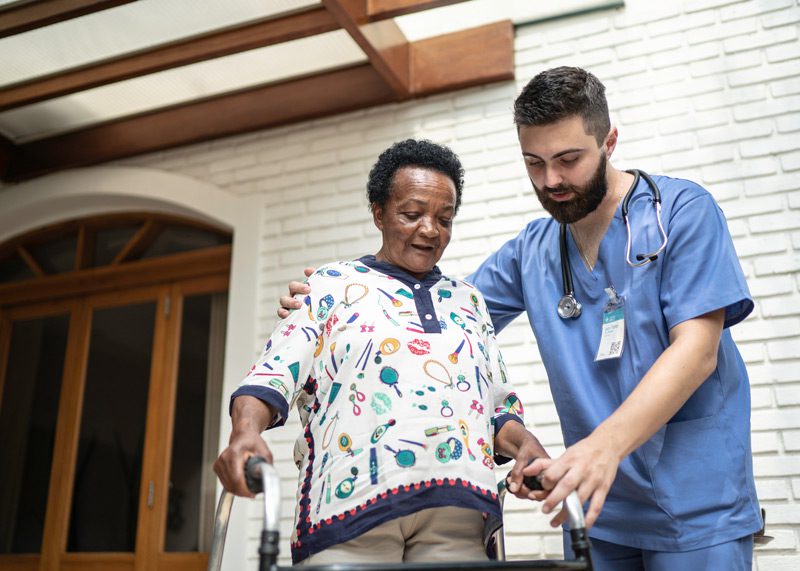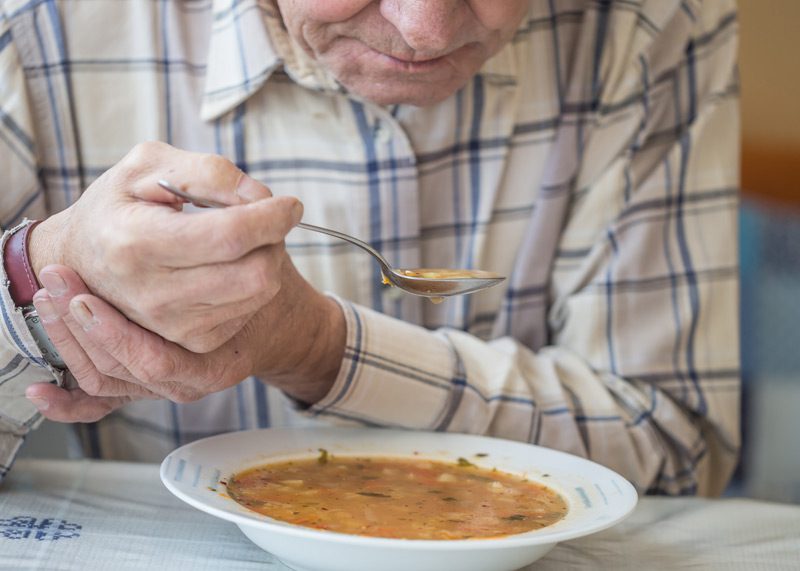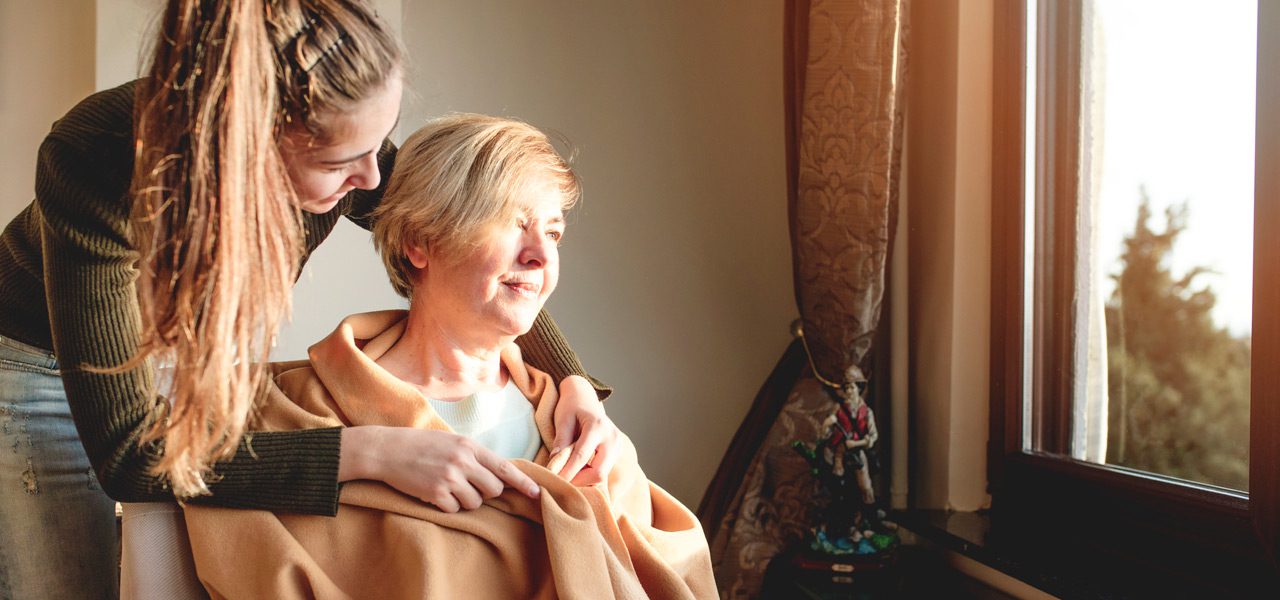

Parkinson’s disease affects the nervous system and makes movement progressively difficult. Eventually, patients require professional care from a trained health practitioner.
Symptoms of Parkinson’s Disease
Patients with Parkinson’s usually develop mild symptoms that may go unnoticed. Symptoms typically affect one side of the body and worsen, even after symptoms begin to affect both sides.
Patients with Parkinson’s may experience:
- Tremor or shaking that begins in the hand or fingers
- Slowed movement (including slow walking and getting up)
- Muscle stiffness that can be painful and reduce the range of motion
- Impaired posture
- Difficulty with balance
- Decreased ability to make automatic movements, such as blinking, smiling, or moving the arms while walking
- Changes in speech (speaking softly, quickly, slurring, hesitating, or monotone)
- Difficulty writing

Stages of Parkinson’s Disease
Parkinson’s disease progresses across five stages, with each stage characterized by unique symptoms.
- Symptoms of stage one include mild symptoms such as a tremor and changes in walking, posture, and facial expressions.
- In stage two, rigidity, tremor, and other movement symptoms affect both sides of the body. The patient will have obvious difficulty walking and maintaining proper posture. They may still live independently, but struggle to complete daily tasks.
- Patients in stage three of Parkinson’s disease experience loss of balance and slowed movement. They are likely to fall and have difficulty dressing and eating.
- In stage four, symptoms are severe and limiting. Patients need help to stand up and require a walker. They also need assistance with daily activities and are unable to live independently.
- Stage five Parkinson’s is characterized by stiffness in the legs that makes it impossible to stand or walk. The patient may be wheelchair bound or bedridden. This stage requires around-the-clock care, and patients may experience hallucinations and delusions.
Parkinson’s Care
Caring for a patient diagnosed with Parkinson’s disease requires addressing financial, physical, and emotional changes. A caregiver may need to:
- Manage medication and scheduling
- Assist with daily personal care, such as bathing, grooming, and dressing
- Provide emotional support
Patients in the early stages of Parkinson’s may need help coping with the diagnosis and learning how to manage medication. Caregivers may guide patients through physical therapy exercises and provide assistance with movement.
As the disease progresses, caregivers may need to adjust daily plans as a result of patient fatigue, difficulty with communication, and excessive daytime sleepiness.
The late stages of the disease require significant hands-on assistance. Patients may experience freezing episodes during which they’re suddenly unable to move. This may lead to falls and injury. Fall prevention is key in late stage Parkinson’s.
Eventually, family caregivers may seek out professional care for their loved one. When care becomes a full-time job and begins to impact the caregiver’s ability to complete their own daily tasks, a home health aide may be the solution.
Active Plus Home Health Care, Inc. has a team of nurses trained to care for patients diagnosed with Parkinson’s Disease. Our medical professionals provide care for patients across all stages of Parkinson’s. Reach out to one of our staff members to learn more about our Parkinson’s Care.

